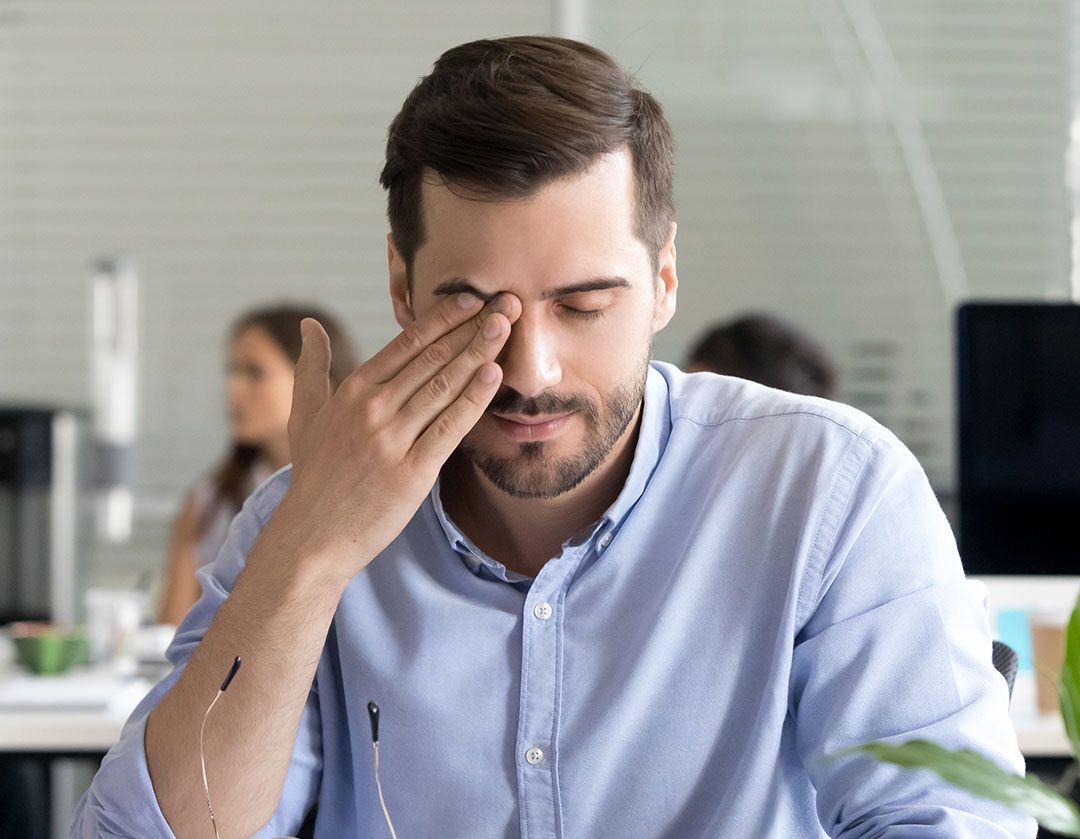What causes dry eyes?
Dry eyes result from a lack of adequate tears either due to decreased tear production or increased tear evaporation. Tears are a complex mixture of mucous, water and oils which helps to protect your eyes from irritants and infection.
Decreased tear production may be caused by:
- Advancing age
- Some medical conditions e.g. diabetes, rheumatoid arthritis, vitamin A deficiency, Sjogren's syndrome
- Certain medications, including blood pressure medications, antidepressants, antihistamines, hormone replacement therapy
- Laser eye surgery
- Damage to the tear glands from surgery, trauma or inflammation
- Long term contact lens wear
Increased tear evaporation may be caused by:
- Eyelid abnormality such as inflammation of the eyelids and associated oil glands (Blepharitis) or incomplete closure following a stroke
- Wind, air-conditioning, heating, fans and smoke
- Blinking less frequently, E.g while using a computer, driving, watching TV or reading
What are the symptoms of dry eyes?
Apart from the sensation of feeling dry, symptoms may include stinging, a burning or gritty sensation, redness, blurred vision, foreign body sensation, difficulty tolerating contact lenses, white stringy mucous discharge, light sensitivity and in some cases even watery eyes (in response to the irritation from dry eyes).
How is it treated?
Initially, it’s worth checking to see if the symptoms are a sign of Blepharitis, which is a leading cause of evaporative dry eye.
Dry eyes cannot be cured, but the symptoms can be treated, and regular tear supplements may help. It’s advisable to optimise your environment in the first instance – for example by using a humidifier and also by avoiding air being blown directly into your eyes from heaters, fans or air-conditioners. Tests for dry eyes and a thorough examination of your tears and eye surface will help to determine the best course of treatment.
Dry eyes cannot be cured, but the symptoms can be treated, and regular tear supplements may help. It’s advisable to optimise your environment in the first instance – for example by using a humidifier and also by avoiding air being blown directly into your eyes from heaters, fans or air-conditioners. Tests for dry eyes and a thorough examination of your tears and eye surface will help to determine the best course of treatment.
Copyright © 2019. Amit Patel


